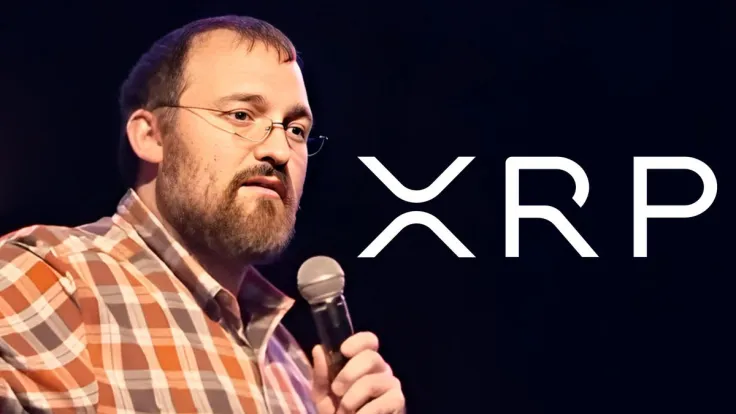
Disclaimer: The opinions expressed by our writers are their own and do not represent the views of U.Today. The financial and market information provided on U.Today is intended for informational purposes only. U.Today is not liable for any financial losses incurred while trading cryptocurrencies. Conduct your own research by contacting financial experts before making any investment decisions. We believe that all content is accurate as of the date of publication, but certain offers mentioned may no longer be available.
The cryptocurrency community is no stranger to passionate debates, and recent interactions on social media highlight the ongoing tension between Charles Hoskinson, the founder of Cardano, and members of the XRP community.
The conflict resurfaced when a Twitter user, purportedly aligned with the XRP community, accused Hoskinson of spending two years attempting to discredit and embarrass the community. The user's tweet seemed to respond to a video snippet, where Hoskinson expressed disappointment over comments made by individuals associated with XRP.
Hoskinson, known for his outspoken nature, responded by reiterating his position that there is no evidence to support allegations that Joe Lubin, cofounder of Ethereum, had any influence over the SEC's approach to Ethereum as opposed to XRP. He distinguishes between what he perceives as legitimate criticism of regulatory approaches to different cryptocurrencies and unfounded conspiracy theories.
The exchange is a reminder of the complexities of the regulatory environment surrounding cryptocurrencies. It taps into a broader discourse that questions the SEC's consistency and transparency in its treatment of different digital assets, a topic that has been a focal point for the XRP community, particularly in the context of Ripple's lawsuit with the SEC.
Hoskinson's follow-up tweet emphasizes the need for concrete evidence when making serious accusations. He criticizes what he views as the spreading of conspiracies and slander, sentiment that points to the frustrations felt by many in the crypto industry over the spread of misinformation.
This disagreement, as always, illustrates the heightened sensitivities around the regulation of cryptocurrencies and the strong allegiance many community members feel toward their chosen digital assets. It also reflects the challenges faced by public figures in the digital assets industry, like Hoskinson, who must navigate the fine line between expressing personal viewpoints and addressing a highly engaged and often polarized audience.
 Vladislav Sopov
Vladislav Sopov Dan Burgin
Dan Burgin